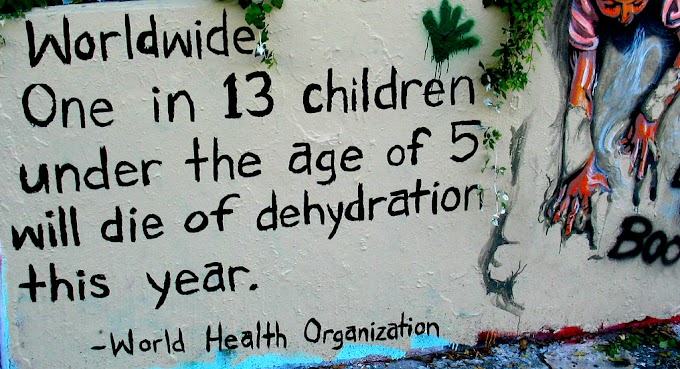Colon cancer usually affects the elderly, although it can occur at any age. It begins as small, cancer-free (benign) groups of cells called polyps, which usually form in the colon. Over time some of these polyps will turn into colon cancer.
Polyps may be small and have few symptoms. For this reason, doctors recommend regular screening tests, which may help prevent colon cancer.
When colon cancer occurs, there are several treatments that can help control it, including surgery, radiation therapy and chemotherapy, targeted therapy, and immunotherapy.
Signs and symptoms of colon cancer are as follows:
Frequent changes in your bowel habits, including diarrhea or constipation, or changes in the consistency of your stool
Bleeding in your stool or rectal bleeding
Persistent stomach problems such as cramps, gas, or pain
Feeling that your bowels are not completely empty
Weakness or fatigue
Unexplained weight loss
When symptoms appear, they vary depending on the size and location of the cancer in your colon.
 |
| Symptoms and Causes of Colon-Rectal or Bowel Cancer |
When to see a doctor
If you consistently see symptoms that concern you, see your doctor.
Talk to your doctor about when to start a colon cancer test. Guidelines generally recommend that a colon cancer screening begin within 50. If you have other risk factors, such as a family history of the disease, your doctor may recommend regular or preliminary tests. .
The reasons
Doctors do not know what are the causes of most stomach cancer.
In general, colon cancer begins when healthy cells in the colon undergo mutations in their DNA. The cell's DNA contains a set of instructions that tell a cell what to do.
Healthy cells grow and divide in order for your body to function normally. But when a cell's DNA gets damaged and turns into cancer, the cells continue to divide - even if new cells are not needed. As cells accumulate, they form a tumor.
Over time, cancer cells can grow to invade and destroy the surrounding normal tissue. And cancer cells can travel to other parts of the body and accumulate there (metastasis).
The risk
Factors that increase the risk of colon cancer include:
old age. Colon cancer can be diagnosed at any age, but most people with colon cancer are over 50 years of age. Colon cancer rates are increasing among people under the age of 50, but doctors are not sure why.
African-American race. African-Americans are at greater risk of developing colon cancer than other ethnic groups.
Personal history of colon cancer or polyps. If you have colon cancer or non-cancerous colon animals, you have a higher risk of colon cancer in the future.
Inflammatory bowel conditions. Chronic inflammatory diseases of the colon such as ulcerative colitis and Crohn's disease increase the risk of developing colon cancer.
Hereditary symptoms that increase the risk of colon cancer. Some genetic changes passed down through generations in your family can greatly increase your risk of colon cancer. Only a small percentage of colon cancer is associated with hereditary genes. The most common hereditary syndromes that increase the risk of colon cancer are familial adenomatous polyposis (FAP) and Lynch syndrome, also known as non-hereditary polyposis colon cancer (HNPCC).
Family history of colon cancer. If you have a blood relative, you are more likely to get colon cancer. If more than one member of the family has colon cancer or colorectal cancer, your risk is even higher.
Low fiber, high fat diet. Colon cancer and colorectal cancer can be caused by a common Western diet, which is low in fiber and high in fat and calories. Research in this area has had mixed results. Some studies have found that people who eat too much red meat and processed meat have a higher risk of colon cancer.
A sedentary lifestyle. Inactive people are more likely to get colon cancer. Getting regular physical activity can reduce your risk of developing stomach cancer.
People with diabetes mellitus or insulin resistance have a higher risk of developing colon cancer.
Obese people are at greater risk of stomach cancer and those who are considered to be of normal weight die from colon cancer.
Smoking can increase the risk of stomach cancer.
Alcohol Excessive alcohol consumption increases the risk of developing colon cancer.
Radiation therapy for cancer. Radiation therapy injected into the stomach to treat previous cancers increases the risk of developing colon cancer.
Avoid
Stomach cancer test
Doctors recommend that people at average risk of colon cancer are shown to have colon cancer by the age of 50. But for people at high risk, such as those with a family history of colon cancer, screening should be considered in advance.
There are several screening options - each with its own advantages and disadvantages. Discuss your options with your doctor and you can decide together which tests are right for you.
Lifestyle changes occur to reduce the risk of developing colon cancer.
You can take steps to reduce your risk of colon cancer by making changes in your daily life. Take action for:
Choose from a variety of fruits and vegetables so that you get the necessary vitamins and nutrients.
Drink in moderation anyway. If you want to drink alcohol, limit the amount of alcohol for more than one man and two men a day.
Stop smoking Explain how to talk to your doctor that may work for you.
Exercise on most days of the week. Try to do at least 30 minutes of exercise on most days. If you are not active, start slowly and slowly build up over 30 minutes.
Maintain a healthy weight. If you want to lose weight, ask your doctor about healthy ways to achieve your goal. The goal is to lose weight slowly by increasing the amount of exercise you receive and reducing the number of calories you eat.
Prevention of colon cancer in high risk people
Some medicines have been found to reduce the risk of premature polyps or colon cancer. For example, some evidence links the risk of polyps and colon cancer to the regular use of drugs such as aspirin or aspirin. But it is not clear how much and how long it will take to reduce the risk of colon cancer. Daily intake of aspirin carries several risks, including gastrointestinal bleeding and ulcers.
These options are generally reserved for people at high risk of colon cancer. There is insufficient evidence to prescribe these drugs to people at average risk of colon cancer.
If you are at high risk for colon cancer, discuss your risk factors with your doctor to determine if the vaccines are safe for you.






0 Comments
Please do not enter any spam link in the comment box.
Emoji